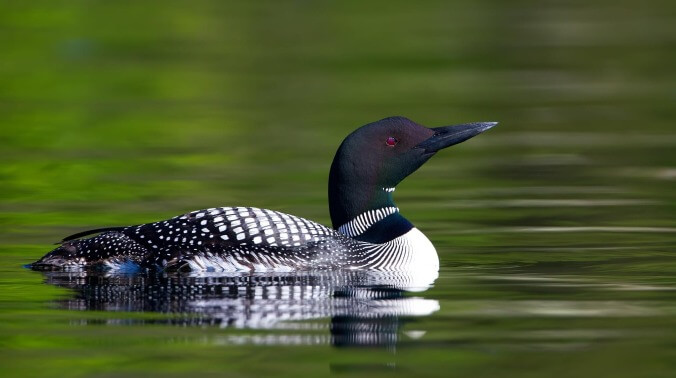A look at why the loon's call is used as TV and movies' go-to wilderness sound effect
If we had a dollar for every time the loon's call is misused...

A common loon enjoying a day at the lake, wealthy beyond imagining thanks to Hollywood royalties. Photo: Jim Cumming
Along with the Wilhelm scream and that part of every movie trailer with a dramatic bass drop, TV and film sound designers love to incorporate the cry of the humble loon into every wilderness scene possible. Because this irritates the hell out of bird fanatics who spend their days obsessing over avian trivia, Vox decided to dig into how the loon’s call came to be so ubiquitous—and why it bothers birders so much.
The video starts off by pointing out loon calls in everything from 1917 and the 2019 Pet Sematary to Rick And Morty, Rome, Platoon, and Godzilla. It also introduces research geographer Terry Sohl, one of the birders/loon SFX critics driven up the wall by this kind of overuse.
